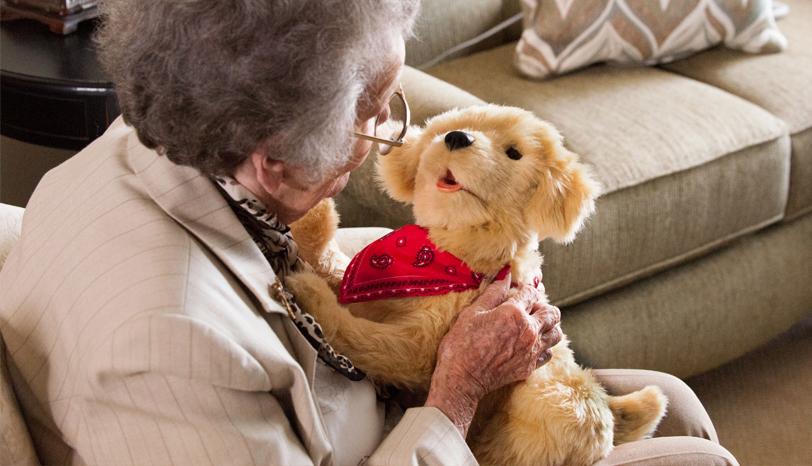Gerontology Course Provides Opportunities for Interdisciplinary Research

A new class at UNC Charlotte brings together a research team of graduate and undergraduate students to consider specific issues in gerontology from a multidisciplinary and research-driven perspective.
As UNC Charlotte communications sits down for a Zoom meeting with UNC Charlotte emeritus english professor Boyd Davis and nursing professor Meredith Troutman-Jordan about the new research class they’re teaching, Davis comes crackling through the screen driving through the streets of Taichung City, in western central Taiwan.
It’s nine in the morning there; it’s nine at night in Charlotte. She’s using her phone to connect, and she’s on her way to pick up soccer players for an early morning game.
“Retirement isn’t a word in her vocabulary,” said Cynthia Hancock, teaching professor and director of the gerontology program at UNC Charlotte.
Davis, a former linguistics professor, retired in 2020 and moved to Taiwan. She’s led dementia-based research for years and continues in her retirement as a full-time researcher.
In the spring of 2021, Hancock held a gerontology program meeting at UNC Charlotte. Davis made a surprise appearance, and Davis and Troutman-Jordan, who are long-time colleagues, began discussing the research Davis was conducting with people living with dementia in Taiwan and mainland China.
They gave those living with dementia the Joy-For-All Companion Pet. It is a furry, life-like pet robot that comes as a cat or dog.
It engages with its environment and is designed specifically to bring happiness and companionship to those who are experiencing the complexities and challenges of aging.

Davis then tells me the story of an older adult woman in Taichung City to whom she gave one.
“Her family is living in America or gone,” she says. “So she’s all alone here. She’s trying one out, and it’s already shown positive results in easing her sense of loneliness.”
“We know these pets do something to ameliorate the conditions that accompany aging,” Davis explains. “But we don’t have enough research on the pet robots with dementia patients and caregivers, and we want to understand how they respond from a research and clinical perspective.”
Later that summer, Troutman-Jordan suggested that she could continue the research in the U.S., and things snowballed from there.
Five days later, they launched a class called Topics in Gerontology: Interdisciplinary Innovations Utilizing Pet Robots to Meet Research, Education and Care Needs. The class involves a research team of six graduate and undergraduate students from across the university, and it investigates specific issues in gerontology from a multidisciplinary and research-driven perspective.
“Practically every discipline has a connection to the aging process,” said Hancock, a career sociologist. “Sociology, anthropology, the arts, philosophy, biology, to name a few.”
The gerontology program was founded at UNC Charlotte over 30 years ago by Dena Shenk, an anthropologist. It offers a minor and a graduate certificate, has over 45 community partners, and features graduate and undergraduate students from all disciplines.
Lindsey Cohan, a psychology student who is in the class, explained why the minor in gerontology is important to her field of study. “Every day, 10,000 baby boomers turn 65,” she said, “and in my own practice I hope to act as a gateway for future clients, both helping them transition into retirement and directing them to the appropriate programs and resources.”
After developing the new course, Davis and Troutman-Jordan partnered with the Centralina Area Agency on Aging to send out fliers advertising the study. Students began conducting research on older adults in Charlotte who had been given a Joy-For-All Pet.
The class takes students step by step through the research process, from getting approval from the Institutional Review Board, to reading the literature, to strategizing with their team, to coming up with a back-up plan, to documenting field notes, and to content analysis.
It is a hybrid model that blends research with practical experience, both advancing research and setting students up for success.
In July, they will submit the pilot data to the National Institute on Aging.
“Pilot research is critical for attracting the attention of donors,” notes Troutman-Jordan. She’s working on two more grant proposals to fund their research.
This semester, the course is back by popular demand. Students are generating and translating guides for immigrant caregivers. It will help establish best practices for immigrant caregivers in the U.S. to deliver the best support to those living with dementia, and it is being translated into the four most widely spoken languages amongst that population: Spanish, Mandarin, Tagalog, and Vietnamese.
“Gerontology takes what we call a life course perspective, which means ethnic diversity and intersectional studies of older adults will continue to frame the development of our work,” says Troutman-Jordan. “Everything has just blossomed and become wonderfully alive from this initial model. We started with the Joy-For-All Pet, but we’ve established the course such that our research can take different directions and expand.”
The gerontology minor is one at UNC Charlotte that requires this type of experiential learning, including a capstone.
“We want our students to have a research orientation,” Davis says. “Research is the essence of evidence-based care. People are getting older quicker, and we have so much more to learn about aging and language.”
For Cohan, the class was unlike any she had ever taken. “There is something to be said about learning by doing,” she said, “and this class has really helped me understand the nature of research, the collaborative efforts needed, and the non-linear process.”
She has since become active in the Alzheimer’s Association, received training as an advocate, and attends virtual events on caregiving and dementia.
She credits her personal experience as her inspiration to improve the lives of those living with dementia. “Losing the grandmother who loved me unconditionally to the disease,” she explained, “is something I never want anyone to have to experience again.”
“My grandmother loved cats, and I know that had this technology been available when she was diagnosed, the cat would have brought her great comfort.”
“No matter what you do,” said Hancock. “Your work will intersect with the realities of aging. The skills we’re teaching are indispensable in virtually any field. Older adults are everywhere so every career is potentially a career that will benefit from gerontological training.”
Like Davis, Troutman-Jordan has been working with older adults for over 22 years. She became interested in that segment of the population and the idea of successful aging.
“Our students are excited to be in the real world and collecting data that will make a difference on how we understand aging,” she says.
“Research is like a ship,” Davis explains. “We have bumpy waters and then we have to float along for a while. But the opportunities are practically endless.”